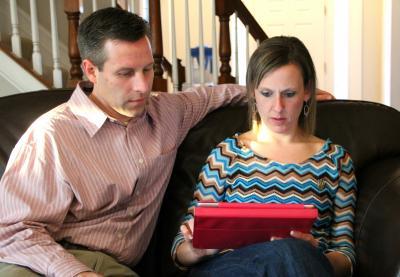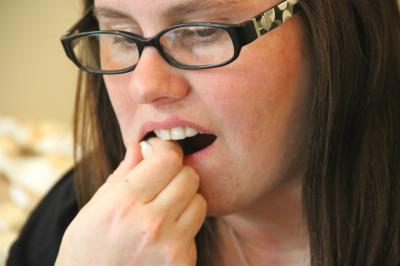Researchers tracked 501 American women ages 18 to 40 years who were free from known fertility problems and had just started trying to conceive, and followed them for 12 months or until they became pregnant as part of the Longitudinal Investigation of Fertility and the Environment (LIFE) Study. Saliva samples were collected from participants the morning following enrollment and again the morning following the first day of their first study-observed menstrual cycle. Specimens were available for 373 women and were measured for the presence of salivary alpha-amylase and cortisol, two biomarkers of stress.
"This is now the second study in which we have demonstrated that women with high levels of the stress biomarker salivary alpha-amylase have a lower probability of becoming pregnant, compared to women with low levels of this biomarker. For the first time, we've shown that this effect is potentially clinically meaningful, as it's associated with a greater than two-fold increased risk of infertility among these women," said Lynch, the principal investigator of the LIFE Study's psychological stress protocol.

Women who have trouble getting pregnant may be under too much stress, according to a newly published study in the journal of Human Reproduction. Doctors have known for some time that stress can contribute to conditions like depression and heart diseases, but new research from the Ohio State University Wexner Medical Center also links stress to delayed pregnancies and an increased risk of infertility.
(Photo Credit: Ohio State University Wexner Medical Center)
Lynch said results of this research should encourage women who are experiencing difficulty getting pregnant to consider managing their stress using stress reduction techniques such as yoga, meditation and mindfulness. However, she said that couples should not blame themselves if they are experiencing fertility problems, as stress is not the only or most important factor involved in a woman's ability to get pregnant.
Germaine Buck Louis, director of the Division of Intramural Population Health Research of the Eunice Kennedy Shriver National Institute of Child Health and Human Development (NICHD) and the LIFE Study's principal investigator, said, "Eliminating stressors before trying to become pregnant might shorten the time couples need to become pregnant in comparison to ignoring stress. The good news is that women most likely will know which stress reduction strategy works best for them, since a one-size-fits-all solution is not likely."

Researchers have found that the more stress women are under while trying to get pregnant, the harder it is. While Abigail David and her husband were trying to conceive, the stress of working full time and trying to start a business may have delayed Abigail's pregnancy. A new study led by researchers at the Ohio State University Wexner Medical Center found that women who were found to have high levels of a stress biomarker had a 29 percent decrease in the probability of getting pregnant and her risk of infertility doubled.
(Photo Credit: Ohio State University Wexner Medical Center)

A new study has found that women with the highest levels of stress biomarkers in their saliva have more problems getting pregnant than other women. The study, led by researchers at Ohio State's Wexner Medical Center, followed more than 400 couples for a year, testing the woman's saliva throughout.
(Photo Credit: Ohio State University Wexner Medical Center)